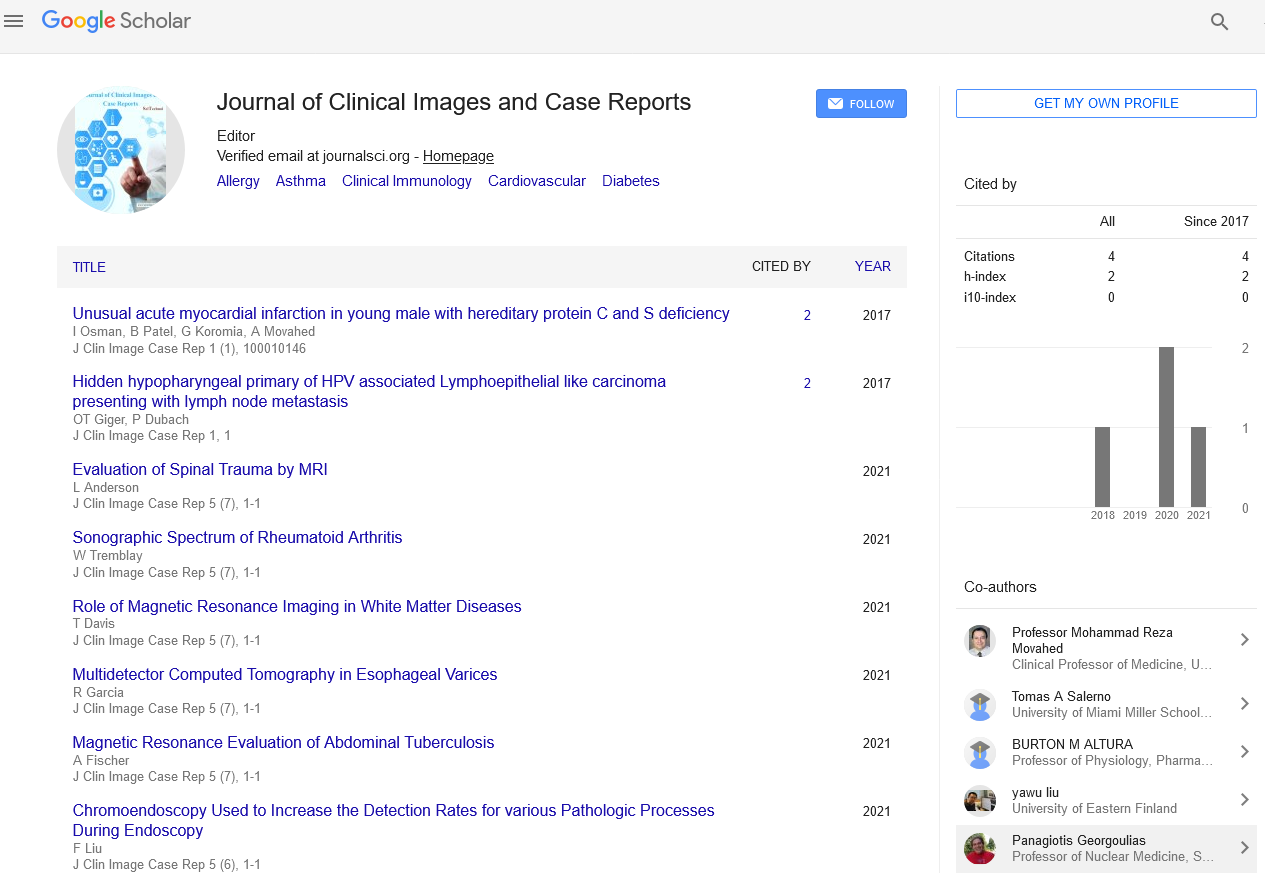Commentary, J Clin Image Case Rep Vol: 8 Issue: 5
Congenital Anomalies and their Impact on Child Development
Mandelbaum Quinn*
1Department of Obstetrics and Gynecology, University of Southern California Keck School of Medicine, Los Angeles, USA
*Corresponding Author: Mandelbaum Quinn,
Department of Obstetrics and
Gynecology, University of Southern California Keck School of Medicine, Los
Angeles, USA
E-mail: quinnmandelbaum@gmail.com
Received date: 25 September, 2024, Manuscript No. CICR-24-153604;
Editor assigned date: 27 September, 2024, PreQC No. CICR-24-153604 (PQ);
Reviewed date: 11 October, 2024, QC No. CICR-24-153604;
Revised date: 18 October, 2024, Manuscript No. CICR-24-153604 (R);
Published date: 25 October, 2024, DOI: 10.4172/CICR.1000331
Citation: Quinn M (2024) Congenital Anomalies and their Impact on Child Development. J Clin Image Case Rep 8:5.
Description
Congenital anomalies, also known as birth defects, are conditions present at birth that affect the structure or function of one or more parts of the body. These anomalies can range from minor physical deformities to major structural and functional impairments. While some congenital anomalies can be treated or managed effectively, others may have long-lasting effects on a child’s development. Understanding the types of congenital anomalies and their potential impact on physical, cognitive and emotional development is critical for early intervention and optimal care.
Congenital anomalies can be broadly categorized into structural and functional defects. Structural anomalies affect the shape or structure of body parts, while functional anomalies interfere with how organs or systems function. Structural defects can include conditions such as cleft lip or palate, congenital heart defects and spina bifida, while functional defects may involve metabolic disorders, neurological disorders, or genetic conditions like Down syndrome.
The causes of congenital anomalies are varied and often involve a combination of genetic, environmental and lifestyle factors. Some anomalies result from genetic mutations or inherited conditions, while others occur due to exposure to harmful substances during pregnancy, such as drugs, alcohol, or infections. Maternal health conditions, such as diabetes or obesity, can also increase the risk of congenital anomalies. In many cases, the exact cause remains unknown.
Impact on child development
The impact of congenital anomalies on child development can vary widely depending on the severity of the condition and the organs or systems affected. Some children with congenital anomalies may experience only mild developmental delays, while others may face more significant challenges.
Physical development: Congenital anomalies that affect physical development, such as limb deformities or facial malformations, can hinder a child’s ability to perform everyday tasks, such as walking, eating, or speaking. In some cases, children may need surgery or physical therapy to improve functionality and mobility. For example, children with congenital heart defects may require surgery to correct the problem and prevent further complications that could impede growth and development.
Cognitive development: Certain congenital anomalies, particularly those affecting the brain or nervous system, can lead to cognitive delays or intellectual disabilities. Conditions like Down syndrome, which result from chromosomal abnormalities, can affect a child’s learning abilities, memory and problem-solving skills. In such cases, early intervention with speech therapy, occupational therapy and special education services can help support cognitive development and improve the child’s quality of life.
The key to minimizing the impact of congenital anomalies on child development is early intervention. Identifying congenital anomalies as early as possible allows healthcare providers to implement treatments, therapies and support services that can help children reach their full potential. For instance, children with developmental delays or physical disabilities may benefit from physical therapy, speech therapy and other specialized programs designed to promote growth and independence.
Congenital anomalies can have a intense impact on child development, affecting physical, cognitive and emotional growth. Early detection and intervention are essential for improving outcomes and helping children with congenital anomalies achieve their full potential. With the right medical care, therapies and support, many children with congenital anomalies can lead fulfilling lives and overcome developmental challenges. Understanding the causes and consequences of congenital anomalies allows parents, healthcare providers and communities to work together to support children and families facing these challenges.
 Spanish
Spanish  Chinese
Chinese  Russian
Russian  German
German  French
French  Japanese
Japanese  Portuguese
Portuguese  Hindi
Hindi 